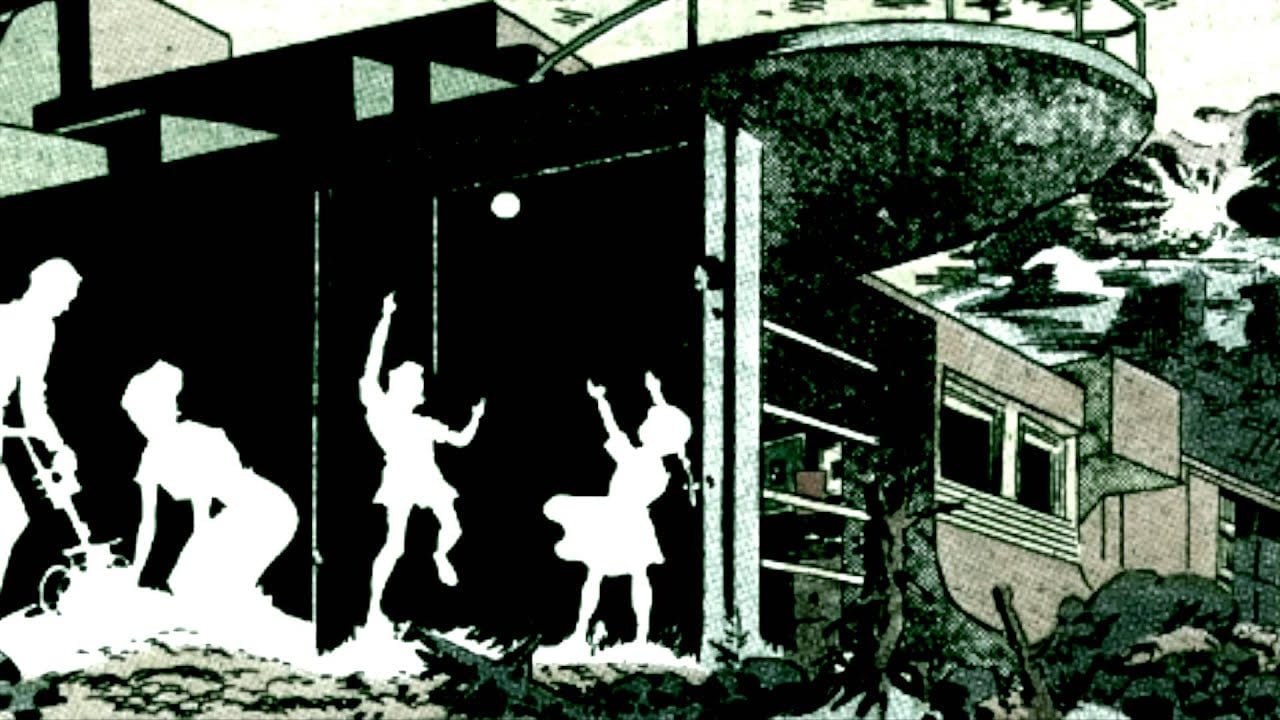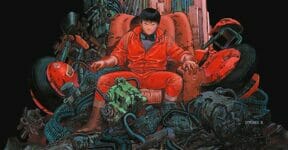Not every great sci-fi tale is written in a novel format comprising hundreds of pages. Concise and dense adventures can be equally, if not more, thought-provoking than their full-length counterparts thanks to the word count limitation and straight-to-point nature of the format. Listed below are some of the most astonishing sci-fi shorts everyone should read.
There Will Come Soft Rains by Ray Bradbury

Everyone on Earth has perished. A smart house keeps trying to take care of its former occupants. The most interesting aspect of the story is that it has no living person. It feels spare and desperate, but oddly sweet at the same time. “There Will Come Soft Rains” doesn’t tell someone else’s journeys or ordeals; it is more about the readers, as they project themselves into the quiet world portrayed.
Buy There Will Come Soft Rains here!
Wikihistory by Desmond Warzel
Alternate history has been a staple in sci-fi, although not as commonplace as aliens or post-apocalyptic mess. In the fictional account of the past depicted in “Wikihistory,” Adolf Hitler turns out to be a major key to developing time travel. However, some ignorant people keep trying to kill him, forcing a more knowledgeable member of the future society to travel back in time and save the man. It is also exciting that you read the entire story through posts on the International Association of Time Travelers forum, complete with members’ usernames.
The Library of Babel by Jorge Luis Borges
Some people do enjoy complex stories that feel as if you are navigating through labyrinths to reach conclusions, and “The Library of Babel” certainly falls under that category. The literal maze here is the library itself, an endless space filled with all the books in the world. And not only the books currently in existence but also those that will be written and could have been written. There lies the ultimate greatest book of all time, among everything in the library, but it is probably buried under pile after pile of random pages.
Buy The Library of Babel here!
Harrison Bergeron by Kurt Vonnegut

Perfect equality might not always be a good thing. In the future where Harrison Bergeron lives, even people’s intelligence levels must be equal; no one is supposed to be smarter than anybody else. In case you are above average, you are required by law to wear a small device on your ear that buzzes every 15 seconds. The disruption is expected to stop intelligent thoughts of any sort that just come across your mind.
All Summer in a Day by Ray Bradbury
Another entry from Ray Bradburry with “All Summer in a Day,” where Margot and other children now live on Venus. Unlike the neighboring Earth where the sun shines just about every day, people on Venus can only see the sun for one hour every seven years. Except for that one-hour period, the weather on the planet is filled with endless rainstorms. Margot, who moved to Venus five years earlier, seems to be the only one who can remember what the sun looks and feels like. Other children are simply too young to even know what the sun is.
Transcript of Interaction Between Astronaut Mike Scudderman and the OnStar Hands-Free A.I. Crash Advisor” by Grady Hendrix
Quite a long title for a sci-fi short, but pretty self-explanatory. It is a story about astronaut Mike Scudderman, who has crash-landed somewhere in space on a strange planet. The plot is told through the conversation between him and an artificial intelligence known as Crash Advisor. A healthy dose of comedy is all over, partly because the optimistic AI is not entirely helpful in dealing with dire situations. Many jokes are references to other popular stories, although they are not always explicitly named.
The Time Machine by H.G. Wells

At 84 pages long, “The Time Machine” is technically a novella, but not so overly long you would see it as something outside the realm of sci-fi short. The story follows a man as he travels through time and discovers how different the world is in each period he visits. It might be a work of speculative fiction, but full of social commentaries relevant to class divisions and inequality observed in the author’s era, Victorian England.
Runaround by Isaac Asimov
The highly revered “Three Laws of Robotics” is written in explicit words for the first time in Runaround. It tells the story of Speedy, a highly valuable robot, as it tries to obey the laws without endangering humans and itself. Runaround appears as the second title (among eight other robot-themed tales) in the short story collection “I, Robot.” All stories explore the implementation of the Three Laws of Robotics in various interesting scenarios, so you might as well read them all.
The Game of Smash and Recovery by Kelly Link
There is no telling how siblings Anat and Oscar end up on a planet known as Home, populated by aliens referred to as vampires and robots called handmaidens. To kill time, they like to play a grand-scale version of hide and seek that ends in a shocking revelation of their true origins. The story involves aliens in space, but it is much closer to being space fantasy rather than sci-fi.
Exhalation By Ted Chiang

It is about the journey of a scientist toward an astonishing discovery about life and death. The scientist is a member of air-driven alien race who gets the source of life from the underground supply of argon. Changes in atmospheric pressure prompt the scientist to take a closer look at some culprits. A terrifying fact about unavoidable death concludes the research.
26 Monkeys, also The Abyss by Kij Johnson
A stage act involves the mysterious disappearance of 26 monkeys. No one knows where the monkeys go after climbing in a bathtub, but they always come back. It is hinted that the bathtub can be a gateway or portal to another universe. In various points of the story, the absurdity is strong, but it does not take away the implicit portrayal of a deep and loving atmosphere.
We think a short story makes for an exciting format to deliver and enjoy science fiction. It is undoubtedly interesting how an author can create an entirely new world, which has to be different (no matter how small the differences are) from the real world, in just few pages. Twists and turns happen at a rapid pace and usually arrive at a surprising conclusion.
Which of the stories listed above are the most engaging? Can you recommend other short stories that sci-fi fans can enjoy? We’d love to hear from you.
Other things you might want to know:
Short stories in I, Robot by Issac Asimov:
Robbie
Runaround (novelette)
Reason
Catch That Rabbit
Liar!
Little Lost Robot (novelette)
Escape!
Evidence (novelette)
The Evitable Conflict (novelette)
What are some popular screen adaptations of sci-fi shorts?
The Day the Earth Stood Still (1951) – based on Farewell to the Master (1940) by Harry Bates
The Fly (1958) – based on The Fly (1957) by George Langelaan
Predestination (2014) – based on All You Zombies (1959) by Robert A. Heinlein
Screamers (1995) – based on Second Variety (1953) by Philip K. Dick
Total Recall (1990) – based on We Can Remember It for You Wholesale (1966) Philip K. Dick
Well-known sci-fi shorts collections:
I, Robot by Isaac Asimov
The Illustrated Man by Ray Bradbury
Overclocked: Stories of the Future Present by Cory Doctorow
Machine Learning by Hugh Howey
Pretty Monsters by Kelly Link
Bloodchild and Other Stories by Octavia E. Butler
Axiomatic by Greg Egan
Welcome to the Monkey House by Kurt Vonnegut
The Man Who Lost The Sea by Theodore Sturgeon
Stories of Your Life and Others by Ted Chiang
The Days of Perky Pat by Philip K. Dick
The Unreal and the Real by Ursula K. Le Guin
Check out other articles by month:







